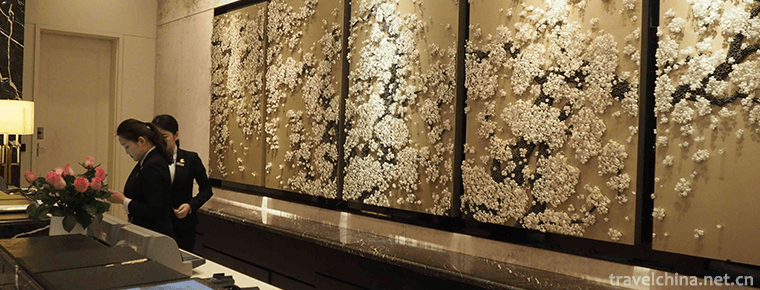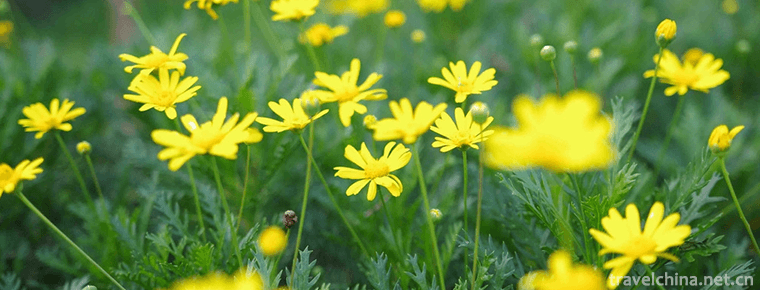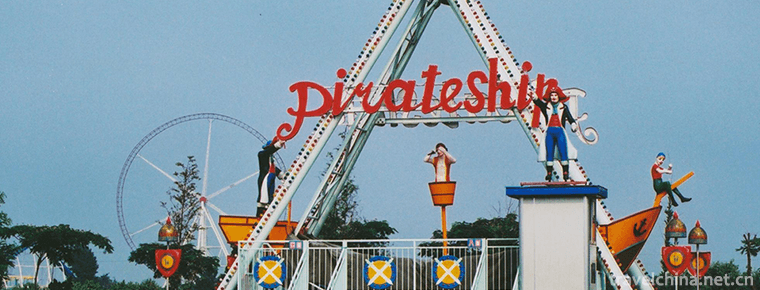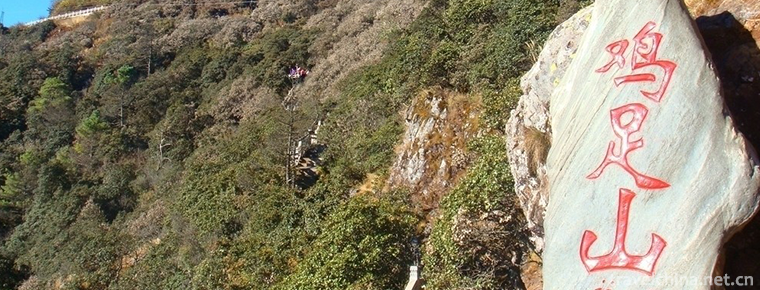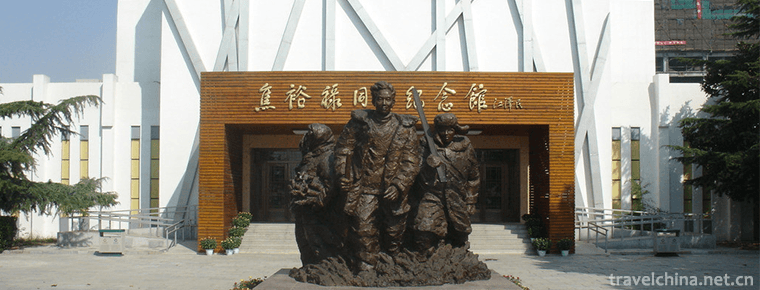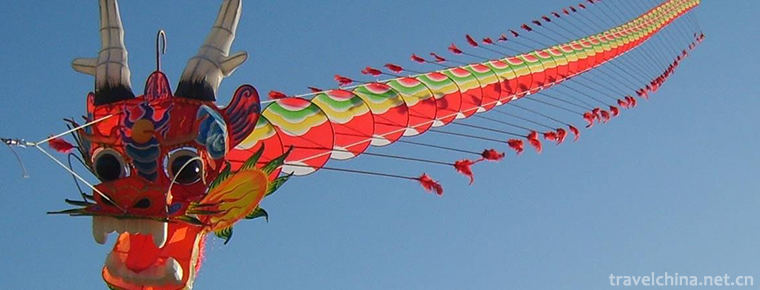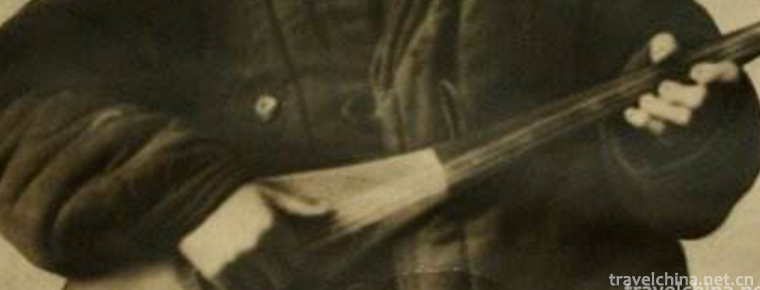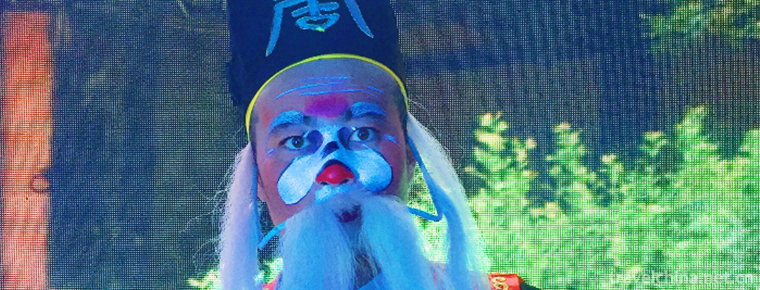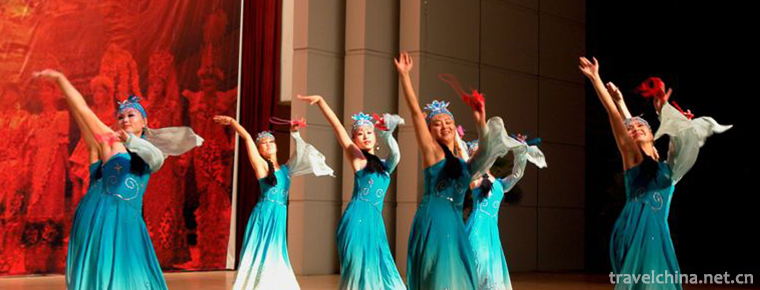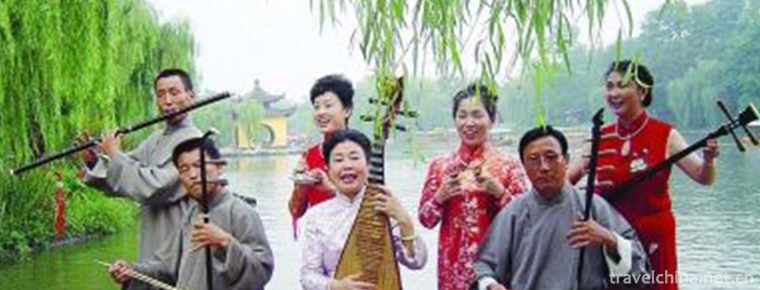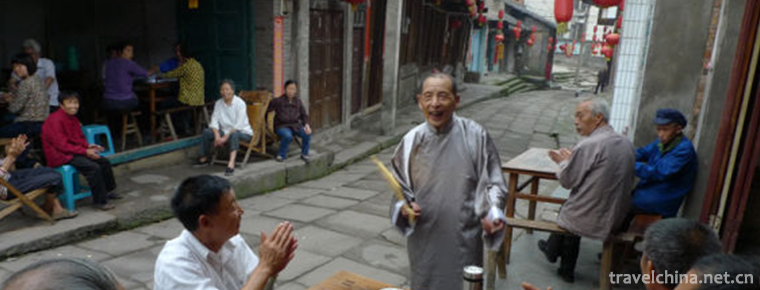Fuzhou Arts
Fuzhou Arts
Fuzhou jiuyi, also known as jingyi, belongs to one of the five traditional local songs in Fujian Province, which mainly focus on singing, and is popular in Fuzhou dialect area. Fuzhou folk singing artists collect folk songs, Xiaoling, folk songs, minors, opera lyrics and folk stories to entertain halls, or dress up as land boating, Qian Jian, stilts, pavilions, horses, shoulder piggyback, lotus falls and other hundred opera juggling, to participate in the long-standing form of singing activities of community fire.
Since the beginning of the 21st century, the development of Fuzhou's performances has been in an endangered state. The bookstores have all disappeared, and the number of Gaotai performances has dropped sharply from more than 4,000 in the 1930s to less than 300 per year. Talents are out of date, music books are lost seriously, actors are fewer than 15, genre art is lost seriously, and it is difficult to enroll students, so effective support and strong protection are urgently needed.
On May 20, 2006, Fuzhou Huyi was listed in the first batch of national intangible cultural heritage list with the approval of the State Council.
historical origin
Fuzhou Jiyi, also known as Jisheng, belongs to one of the five traditional local operas in Fujian Province, which mainly consists of singing. It is a collection of scattered songs, Xiaoling, folk songs, minor tunes and folk stories by Fuzhou folk singing artists. It is formed by participating in the fire activities of clubs for a long time by performing in halls or dressing up as land boats, money swords, stilts, terraces, horses, shoulder bundles and lotus falls. Singing form.
Fuzhou Jiuyi is one of the five major types of music in Fujian Province. It is popular in Fuzhou, Fujian Province, Fujian Hou, Changle, Lianjiang, Fuqing and other Fuzhou ethnic areas. It is also spread to Taiwan, Hong Kong and Macao. It is also sung in Fuzhou overseas Chinese residential areas such as Myanmar, Singapore and Indonesia. Since the founding of "Fuzhou Artistic Music Singing Festival" in 1943, it has been named Fuzhou Actress Arts .
Jiyi originated from Bai Opera in Tang and Song Dynasties. At the beginning of the Qing Dynasty, there were "Dongzhong Chun" and "Jingguofeng" clubs in Fuzhou. During Jiaqing and Daoguang years, there were "Jianghu performers" singing Jianghu tune and "Confucian Lin performers" singing comic tunes, such as "Xiaopenglai", "Ziyun Mountain Pavilion", "Baixuechun", "Wufeng Yin" and so on. During the reign of Xianfeng and Tongzhi, Shihuan (Fan) actors and Tiger actors appeared. The famous ten Huanyu are the "Crane Ming Gao" club and so on. "Tiger Nu" is composed of Taoist tunes and folk minors by some professional Taoist monks. It is compiled into exhortations for the world. It is sung at the time of "attending the throne" and "calling" and other legal events. It is also sung by the golden revolution musicians, also known as "Ten Pleasures in Clear Sound". The "Buguang Han" and other clubs organized by Taoist priest Cheng. In the mid-Guangxu period, "foreign geisha" prevailed. The melody of "foreign geisha" is lively, the style is rough, the language is popular and vivid, singing folk stories. There are classes such as "Dayunxiao", "He Yuntian", "Cold Moon Palace", "Yale Tian", "Tongle Xuan" and so on. They participate in the social fire parade with small discs, playing "land boating", "underground plateau", "Taige", "horse", "shoulder piggyback" and so on, or rewarding and singing in churches with small stories such as "monks begging relatives", "Ying Bai" and "Qian Jian Ji". Shortly afterwards, there appeared "Pinghua Jishe", which sang four tunes of amusement, rivers and lakes, foreign songs and minor tunes at the same time, and later shared four tunes in one track. The so-called "flat speaking" means the use of local dialect. Pinghua club has gradually become the mainstream in the process of singing. During the period of the Republic of China, especially in the 1930s, Pinghua famous clubs included "Touring the Moon Palace", "Bufo Palace", "Sheng Sanle", "Xiao Long Feng", "Xiao Long Feng", "Lin Yiyin", "Zheng Zhengji" and so on. They come in various forms and show their magic powers. The "whole hall performers" of the Yingtang Meeting originally consisted of 16 people, and at that time there were also 8 people. Originally, there were 8 "Half Hall" actors. At this time, there were 4 people. There were even "Xiao Longfeng", "Zheng Zhenji" and other two-stage forms, such as "Lin Yiyin" and other single-stage forms. Some actors also played "hanging garments", that is, wearing more elaborate costumes. Men's long shirts, high hats, women's flanged cheongsam or flanged pair of skirts and pants. Some of them also play small plays to broaden their livelihoods. During this period, famous artists included Zheng Shiji and Mou Jinfeng's "Xiao Long Feng" class composed of husband and wife. They sang by themselves in two stages, with beautiful singing voice and lively form. As well as Lin Yiyin's single-stage solo singing; Zheng Zhengji's father and daughter double-stage singing, the first to introduce the dulcimer in performances. From the late period of the Anti-Japanese War to the eve of liberation, a large number of Fujian opera artists and social unemployed vagrants went to the streets to sell and sing, and the number of actors surged to more than 300, with the overall level declining, fierce competition in the industry and difficult livelihood. Together with the bullying and squeezing of the Kuomintang army and police and local evil forces, even famous actors are often "summoned" for "red envelopes", taxation, torture and detention. In 1943, in order to coordinate internal relations and protect their rights and interests, the artists formed the Fuzhou Club of Boxing Music and Singing.
After the founding of the People's Republic of China, in 1952, the sorority organized the whole industry to re-perform Fujian opera for a time, but soon celebrities Chen Runchun, Zheng Shiji, Mou Jinfeng, Huanglian Guan and so on withdrew successively to restore the variety of sorority. They tried to reform the old artistic forms and methods. Chen Runchun quoted commentary tables, structured Sanqu, divertimento and traditional Folk Quotations into complete stories, changed the habit of sitting in silence, increased the virtual meaningful expression and action, enhanced the story and movement of the program, played the role of self-solo singing, stressed the advantages of singers, entered the bookstore and high-stage performances, and received by the audience. By the way, known as "Run Run Ling Singing", gradually promoted in the industry, renovated and finalized, participated in the 1956 Municipal Quyi Festival.
Fuzhou Jiyi originated from Tang and Song Dynasty. From the end of Ming Dynasty, we can see its vein. Singing can be divided into five categories: funny tunes, rivers and lakes, foreign songs, Luoluo and minor tunes. During the Ming and Wanli years, Cao Xuequan started to create amusing tunes, save classes, sing to the early Qing Dynasty, and evolved into a Confucian Lin Promotion Society dedicated to amusing tunes. At the end of the Ming Dynasty, there was a Jianghu Promotion Society composed of Yiyang tune artists who avoided war and entered Fujian Province. After Daoguang, the folk songs and Ballads of Fuzhou were the keynote of the performance, and the Yiyang tune, Kun tune, Bangzi tune and Su and Yangminor tunes were developed into two foreign tunes. Song promotes society.
In the Qing Dynasty, there appeared many folk classes and societies, known as "societies", which mainly focused on performing arts. The famous ones were Dayunxiao, Jiayuntian, Yale Tian, Tongle Xuan, etc. During the Taiping Heavenly Kingdom period, a large number of refugees fled from Zhejiang, Anhui and Jiangxi to Fujian. The artists gathered along the Jingyuan Lane and Jiaochang District in Fuzhou. They sang along the street in Jianghuai minor, Lianhualuo and Yiyang tune, which had a great impact on local art. After the War of Resistance Against Japan, artistic performances gradually declined .
During the period of the Republic of China, the promotion classes absorbed and penetrated each other, singing comic tunes, rivers and lakes, foreign songs and minor tunes in order to sing sang songs in solo. Long cards and cross-talk (duet singing) are mainly called regular lectures or three sounds.
After liberation, performers faced the challenge of adapting to the new era. The Association of Actors once decided to change to Fujian Opera, and actors were facing extinction. At that time, a group of famous actors insisted on the performance of actors. Chen Runchun and others cooperated with the author to absorb the commentary tables and connect the traditional Sanqu with the commentary tables into a full-text repertoire capable of performing for two or three hours. In the second creation, the narrative characteristics of the art of rap should be strengthened, and the narrative characteristics of the art of Quyi should be highlighted by oral expression and clear singing tone. In the performance, kneading, sitting and walking singing are used to increase the scope of performance. In terms of service mode, we should open up a new way to change the double track system of singing and performing in teahouse and bookstore. After performing practice, this form of performance gradually became popular with the audience and developed into Fuzhou actress.
Since the beginning of the 21st century, the development of Fuzhou's performances has been in an endangered state. The bookstores have all disappeared, and the number of Gaotai performances has dropped sharply from more than 4,000 in the 1930s to less than 300 per year. Talents are out of date, music books are lost seriously, actors are fewer than 15, genre art is lost seriously, and it is difficult to enroll students, so it is urgent to give effective support and strong protection .
Artistic characteristics
Traditional classification
The traditional repertoire of Fuzhou actress art is divided into three categories: Jianghu actress, Gejie actress and amusing actress according to the music cards adopted. There are Pearl Tower, Mother Turtle and so on. Gejie originally has "Qijian Festival", "White Fan Ji", "Picking Tea Ji" and so on, mostly for folklore stories. Both types of songs are sung in dialect and vernacular, popular and lively, and their tunes are rough and lively. In particular, most of the actors are comic stories, witty and interesting.
The comedy performers include Ziyuchai, Female Transport Skeleton, Monkey Report, Ganoderma lucidum and Wang Zhaojun, etc. They are mostly long-brand suites, which are suitable for expressing sad and low mood, singing elegantly in dictionaries, singing merits and merits, and used to perform more in halls. In addition, there are three kinds of melodies which are used in a comprehensive way.
Since 1950, a number of modern repertoires have been created. The influential works include The Red Three Brothers, The Splendid River and Mountain, A Frame of Photos, homesickness and so on. At the same time, some excellent traditional repertoires, such as Sifan, have been arranged and performed.
There are four kinds of singing tunes in Fuzhou Jiyi, namely "teasing tune", "river lake", "song" and "minor". There are also folk minors such as "picking lotus drum", "celebrating the New Year", "crab song" and "several pieces". Their programs are mainly composed of middle stories, supplemented by Sanqu singing.
Representative repertoire
According to the singing cards used, Fuzhou traditional performances of Kabuki can be divided into four categories: Jianghuben, Songben, Qiqiaoben and minor songs. Among them, they belong to Jianghuben's representative programs, such as Pearl Tower and Mother Turtle, etc. The representative programs belonging to "Songben" include "White Fan Ji" and "Picking Tea Ji", and the representative programs belonging to Qiqiaoben include "Ziyuchai", "Monkey Bill", and so on. "Ganoderma lucidum grass" and "Wang Zhaojun" and so on. These programs are the main body of Fuzhou Art Programs, in addition, there are various kinds of melodies used in a comprehensive way. In the latter half of the 20th century, there appeared many new programs reflecting real life, such as Red Three Brothers, Splendid Rivers and Mountains, A Frame of Photos, homesickness and so on. At the same time, some excellent traditional songs such as "Sifan" were also arranged and performed.
Form of performance
Fuzhou performers use Fuzhou dialect to rap. The performances are usually performed by one or two people who play erhu or three-stringed rap performances by themselves. The performances are mainly composed of singing, with speaking tables between them. Others are accompanied by three-stringed, Yueqin and low-hu. Among them, the long program of rap and singing performance is called "commentary". Many people perform Erhu, Sanxian, Yueqin, Louhu and Bangu, sandalwood board, wrestling, single cymbal, flute, Sheng, Xiaosuona and other self-accompanied rounds or rounds of singing are called "the whole hall". Traditional social fire performances are supplemented by acrobatic performances such as boat running, stilts walking, pavilions, horses and lotus sticks.
Inheritance status
Actors and commentators also jointly went to the United States, Singapore, Hong Kong and Taiwan for performances, and sent local songs and local customs, which were very popular. "Sifan" and "Yang Mu Da Shui Guan" participated in the first national opera performance, and "Recruiting Sisters as Brides" won the third prize in the creation encouragement award and performance of the first national opera competition. Nowadays, performers are still enriching people's local cultural life in Fuzhou's urban and rural areas, and are also active in Fuzhou's inhabited areas all over the world.
On July 17, 2008, at 8:00 a.m. in the Eight Banners Club Hall of Daoshan Road in Fuzhou, Fuzhou Jueyan Jiyi Tradition Institute was officially unveiled and established. Vice Secretary of the Municipal Committee, Mayor Zheng Songyan, Standing Committee of the Municipal Committee, Vice Mayor Zhu Hua and famous performer Jiang Kun attended the unveiling ceremony. The unveiling ceremony hasn't started yet, and the Eight Flags Guild Hall is full of people. At about 8:15, Zheng Songyan and Jiang Kun jointly unveiled the exhibition. When the red cloth was uncovered, the applause was thunderous and several retired artists laughed brilliantly. Afterwards, the Fuzhou Quyi Troupe performed a special performance of the fine works of Fuzhou Quyi Art. As the finale of the ten performers "Qinlouyue Chunhuifang Lane", the people present were as if they had returned to the court of the Tang Dynasty, even if they had never met the audience who were singing, they were intoxicated.
Fuzhou Juanhua Huyi Institute was officially approved and established on April 29, 2008. It is the first institution in China to engage in the inheritance and teaching of local folk art. It specializes in the research, inheritance, performance and training of folk art talents, such as commentary and singing. It is understood that in the three lanes and seven lanes of the ancient Ming and Qing residential complex being repaired, the daily office space of the seminar has been built.
Chen Xiaolan, author of Liyici and head of Fuzhou Quyi Troupe, said that there was no successor to comment and Liyi. After the establishment of the Institute, he hoped to absorb high-quality students from universities all over the country.
Xu Heping, chairman of Fuzhou Quyi Artists Association, said that the establishment of the Institute represents the government's emphasis on national intangible cultural heritage. The Institute will strengthen art research and data collection so that young people can better understand traditions.
artistic value
The main artistic value of Fuzhou Jiuyi lies in
First, retain the Song and Yuan opera art close to the masses of the "hundred operas" legacy;
Secondly, there are many branches, various forms and diverse voices.
Third, the character Gallery of Fuzhou civilians and the character light of Fuzhou culture;
Fourth, it is an important carrier of Fuzhou dialect. Fuzhou Jiyi has a history of several hundred years. It retains more than one hundred copies of its repertoire. It has a wide audience in Fuzhou dialect area. It has a long influence on the popularity of Chinese (Fuzhou nationality) both at home and abroad. It has passed on for several generations and has local characteristics.

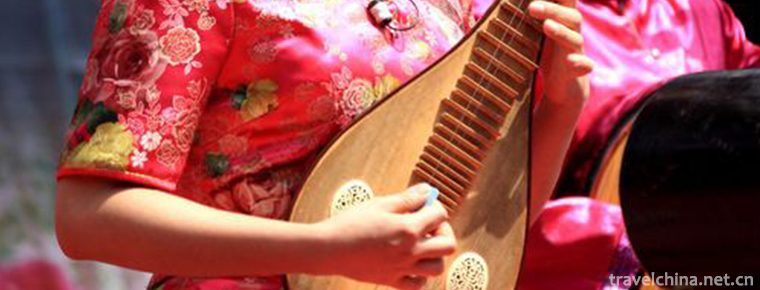
-
Longting Hotel East China Sea Shenzhen
Langting's history can be traced back to 1865. The grand opening of Langting Hotel in central London, England, has become the first truly "luxury hotel" in European history, creating a brill.
Views: 582 Time 2018-12-16 -
Shanghai Gulf National Forest Park
Shanghai Bay National Forest Park is located in the May 4th Farm of Haiwan Town, Fengxian District, Shanghai, 60 kilometers from the center of Shanghai. It is a large artificial urban ecological fores.
Views: 144 Time 2018-12-19 -
Jizu Mountain Scenic Spot in Binchuan
Jizu Mountain is located in a cave-making area about 20 kilometers west of Binchuan County, Yunnan Province, 90 kilometers away from Dali City. It is named for its three peaks in the front and a ridge.
Views: 140 Time 2019-01-03 -
Jiao Yulu Memorial Park
Jiao Yulu Memorial Park (formerly Jiao Yulu Martyrs Cemetery) was built in February 1966. It is located on the old embankment of the Yellow River in the north of Lankao County, Kaifeng City.
Views: 153 Time 2019-01-22 -
Yangda Kuduktur Beacon Platform Site
Beacon also known as beacon platform, beacon platform, Yandun, pyrotechnic platform. If there were enemies, smoke in the daytime and fire in the evening were the quickest and most effective ways to tr.
Views: 208 Time 2019-03-02 -
Kite making skills
Kite making skills, Weifang City of Shandong Province, Nantong City of Jiangsu Province, Lhasa City of Tibet Autonomous Region, Beijing, Tianjin and other local traditional skills, one of the national.
Views: 120 Time 2019-04-29 -
Kirgiz Kumzi Art
Kumzi is an ancient plucked instrument unique to the Kirgiz people. The meaning of "Kumzi" Kirgiz people is "beautiful musical instrument". Mainly spread in Xinjiang Kirgiz Autonom.
Views: 170 Time 2019-05-09 -
Eyebrow household
Eyebrow households, distributed in Shanxi, Shanxi, Shaanxi, Gansu, Western Henan and other provinces, also known as "Eyebrow Shao" or "confusion", are named for their euphemistic m.
Views: 87 Time 2019-05-31 -
Xibo Westward Movement Festival
The Xibo people's westward migration Festival is called "418 Festival" because it is on April 18 of the lunar calendar. Because of the intention to miss relatives, also known as the Day of R.
Views: 208 Time 2019-07-01 -
Yangzhou Qingqu
Yangzhou Qingqu, also known as "Guangling Qingqu" and "Weiyang Qingqu", is a form of Musical Singing developed on the basis of popular songs and minors popular in Yangzhou during t.
Views: 126 Time 2019-07-10 -
Folk Stories of Zouma Town
Folk stories of Zouma Town, Jiulongpo District, Chongqing City, are spread in Zouma Town. The exact age of its origin can not be verified. However, the Zouma Town was established in the late Ming and .
Views: 495 Time 2019-08-16
